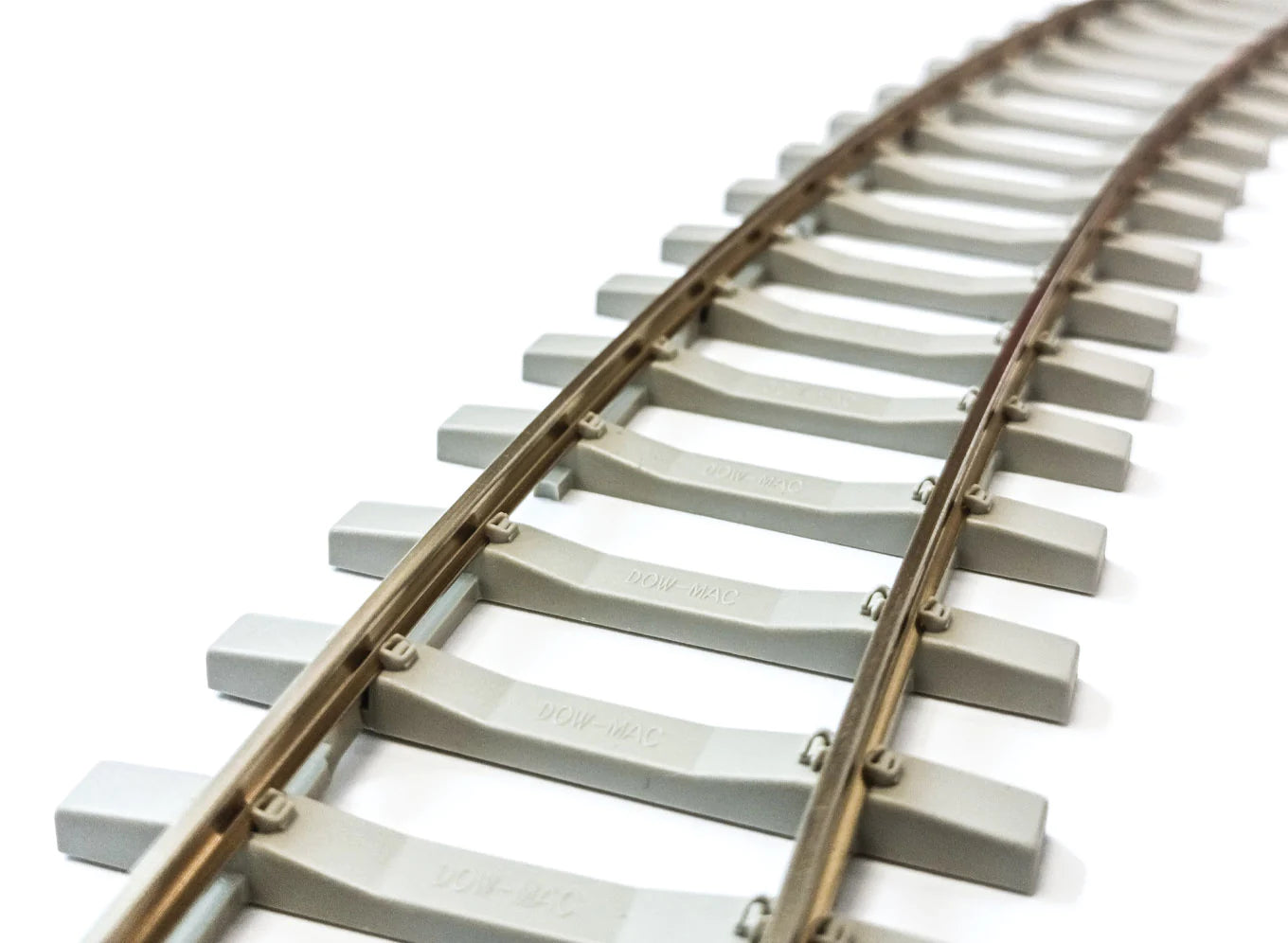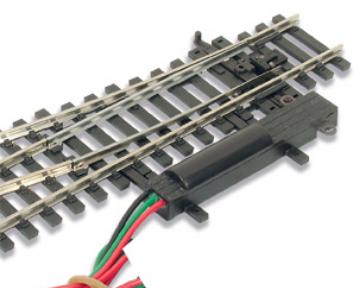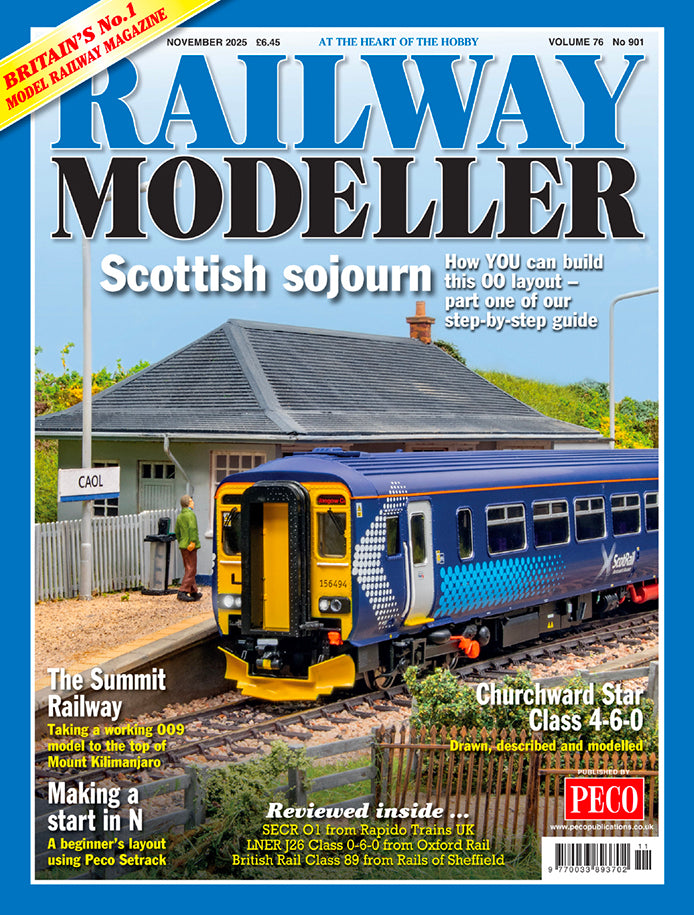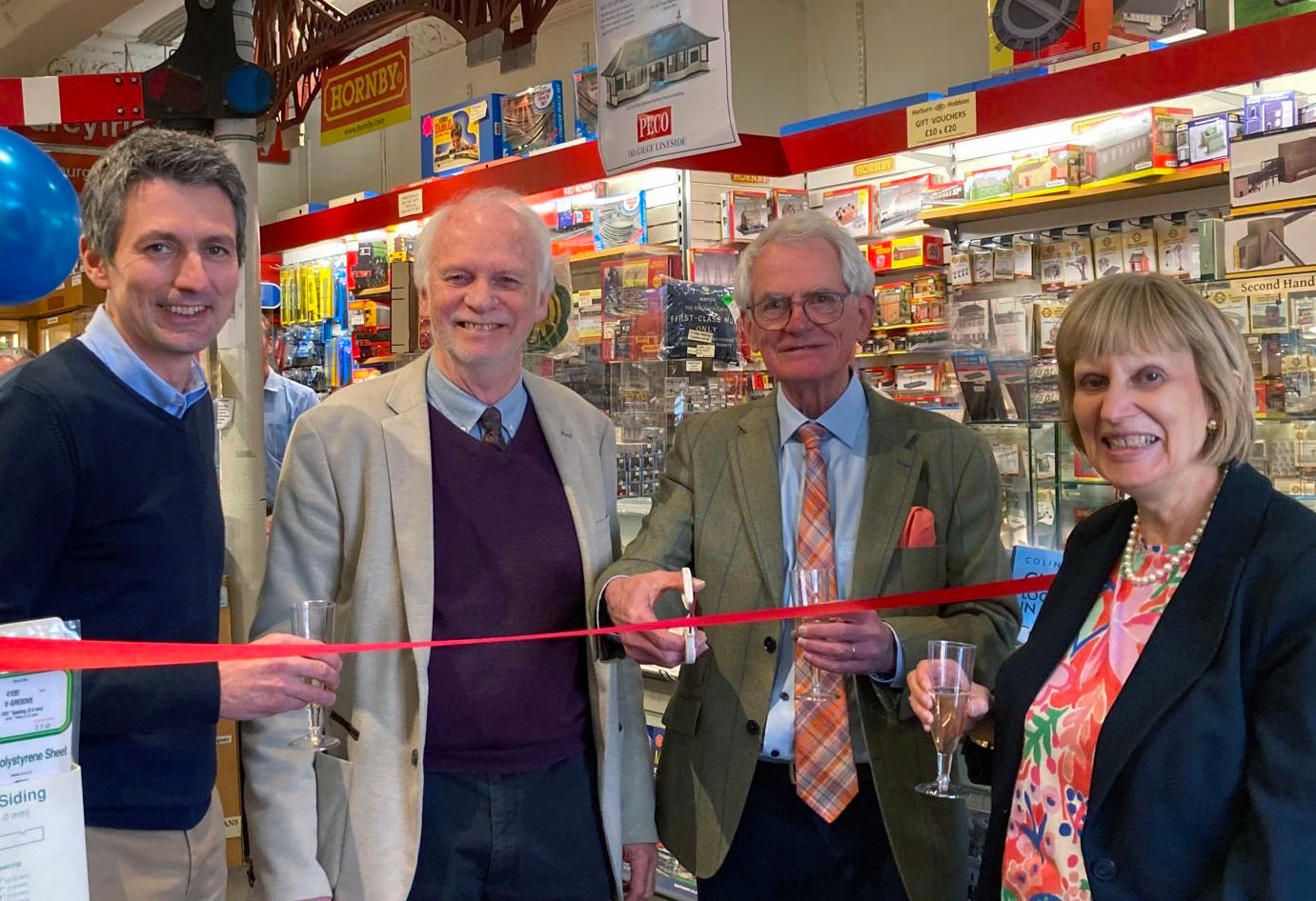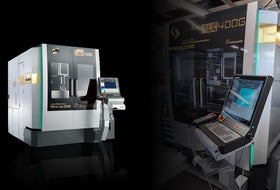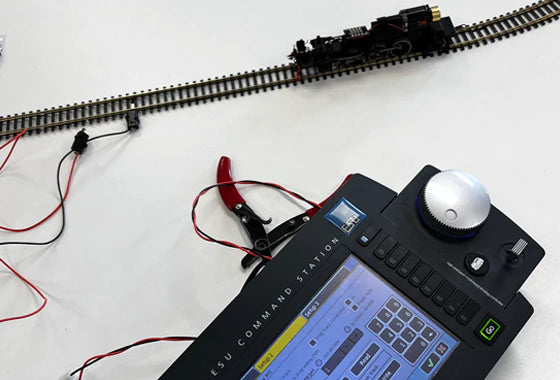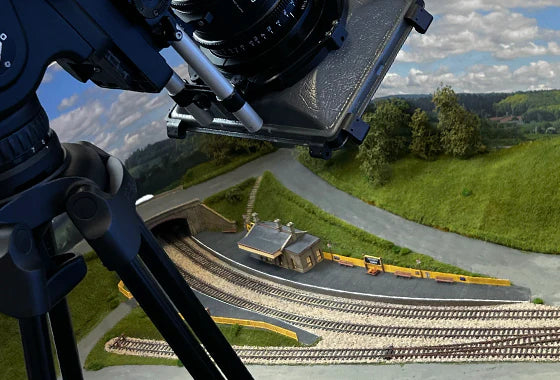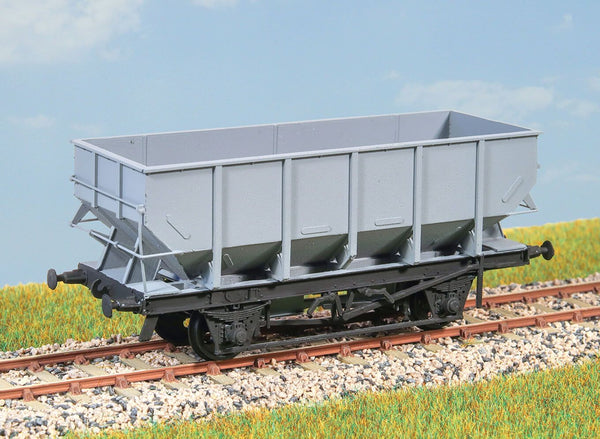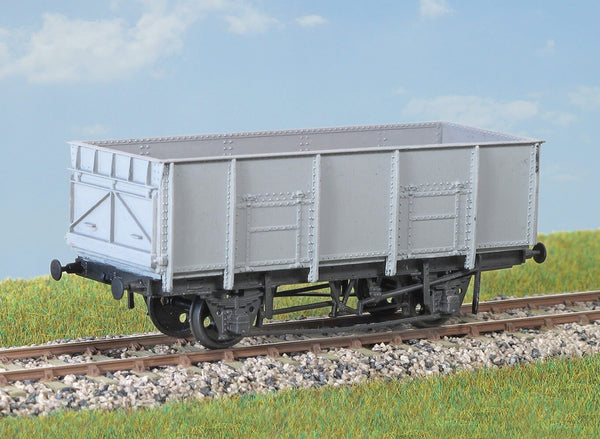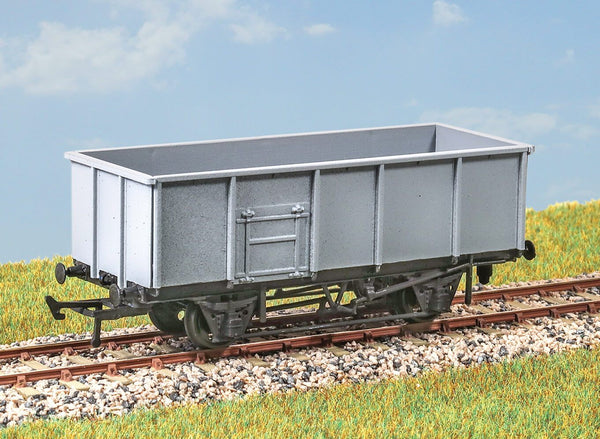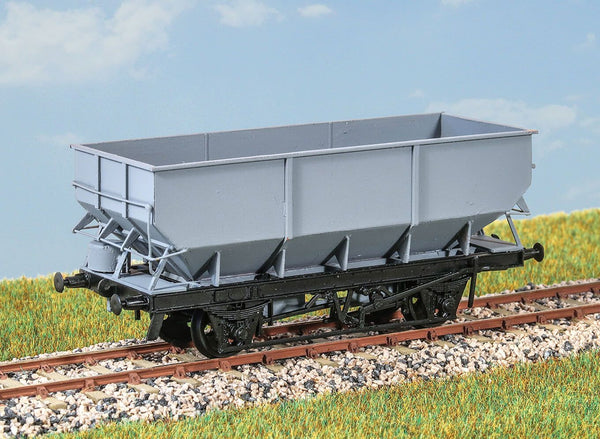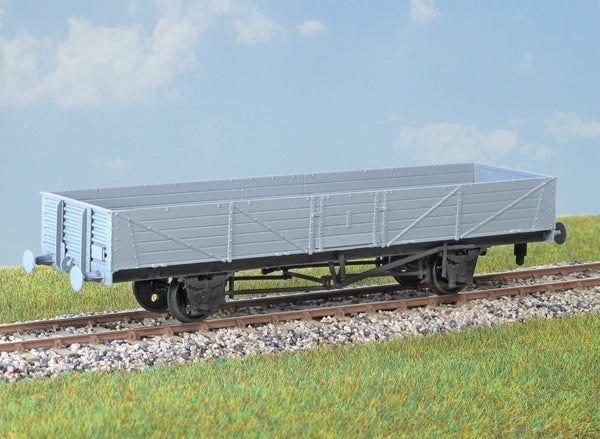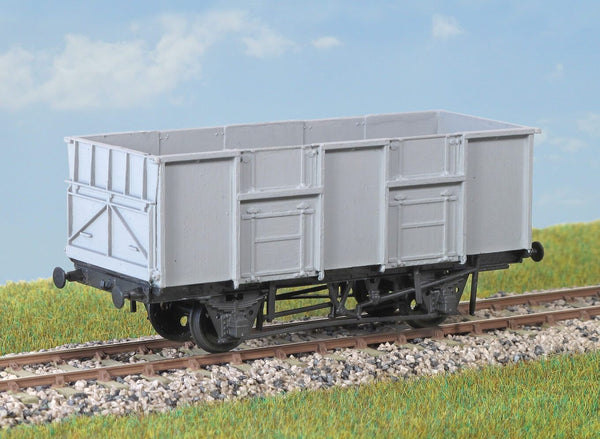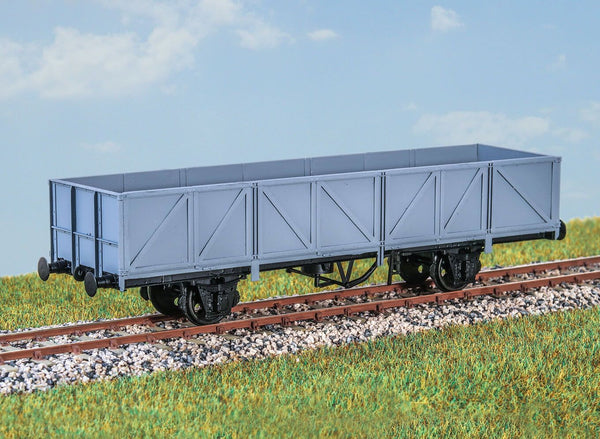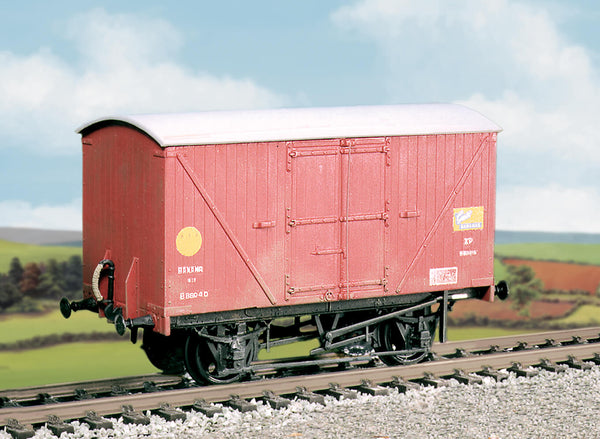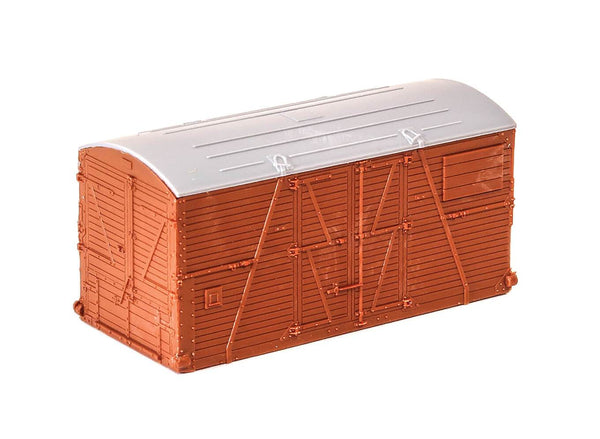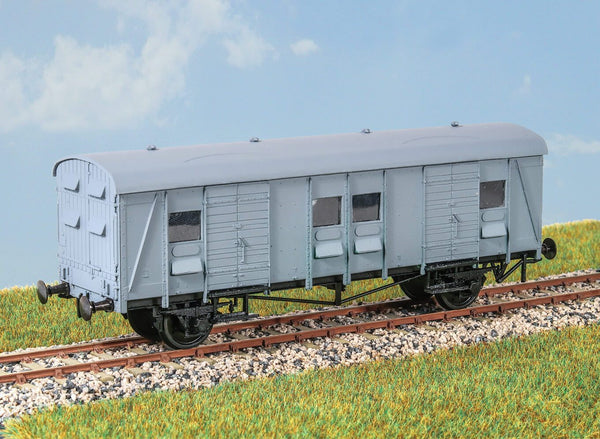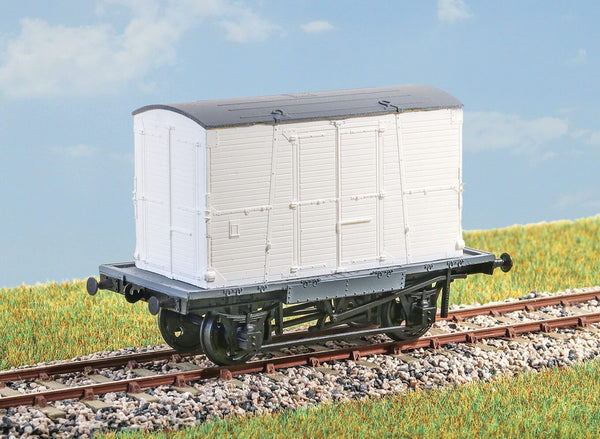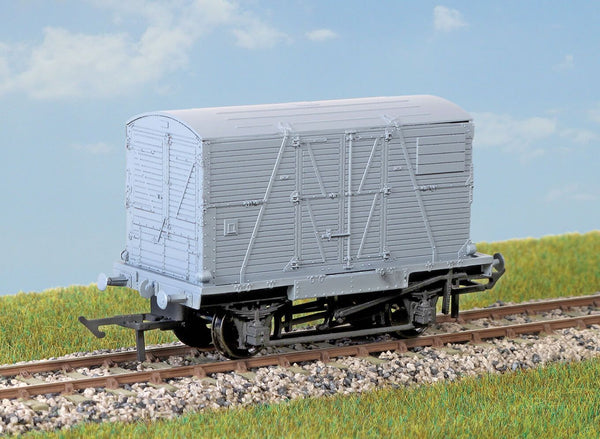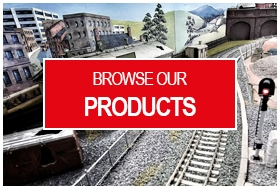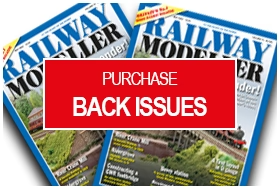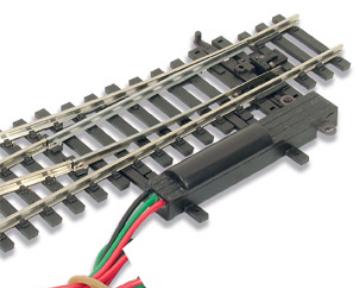BROWSE PECO PRODUCTS
Browse through our complete product portfolio.
1059 Products Found
BR 21ton Coal Hopper Wagon
Diagram 1/146. 16,800 were built between 1952 and 1958. They were widely used for coal traffic especially in North East England. Common well into the 1980s. The kit has a choice of roller and oil axleboxes. These finely moulded plastic wagon kits come complete with pin point axle wheels and bearings. Glue and paint will be required, along with appropriate transfers. Additional parts to enable the vehicle to be modelled incorporating modifications made to the prototypes during their working life are included where appropriate.
BR 21ton Coal Wagon
1000 of these wagons 21 ton Coal Wagon (diagram 1/110) were built in 1950/51 for BR by the Metro-Cammell company. Many were still in service in the late 1970s. These finely moulded plastic wagon kits come complete with pin point axle wheels and bearings. Glue and paint will be required, along with appropriate transfers. Additional parts to enable the vehicle to be modelled incorporating modifications made to the prototypes during their working life are included where appropriate.
BR 21ton Mineral Wagon
(Rebuilt 1977) This vehicle represents the end of the evolution of the classic British coal wagon. Introduced in 1977, using spare chassis, 947 were built and used chiefly for industrial coal traffic.These finely moulded plastic wagon kits come complete with pin point axle wheels and bearings. Glue and paint will be required, along with appropriate transfers. Additional parts to enable the vehicle to be modelled incorporating modifications made to the prototypes during their working life are included where appropriate.
BR 21ton Rebodied Hopper Wagon
21 ton Rebodied Hopper Wagon (Vac. Braked) In the 1970s BR started to put new bodies on hopper wagons built in the 1940s and 1950s. Some ran with vacuum brakes. Examples lasted into the 1990s. These finely moulded plastic wagon kits come complete with pin point axle wheels and bearings. Glue and paint will be required, along with appropriate transfers . Additional parts to enable the vehicle to be modelled incorporating modifications made to the prototypes during their working life are included where appropriate.
BR 22ton Tube Wagon
2350 of these wagons (diagram 1/448) were built between 1954 and 1961 to carry long tubes and bulky general merchandise. Most were withdrawn by the 1980s, but some survive in infrastructure use. These finely moulded plastic wagon kits come complete with pin point axle wheels and bearings. Glue and paint will be required, along with appropriate transfers. Additional parts to enable the vehicle to be modelled incorporating modifications made to the prototypes during their working life are included where appropriate.
BR 24¬? ton Coal Wagon
Over 2000 of these wagons (diagram 1/115) were built in 1953-1956 to carry coal to power stations and steel works. Withdrawn by 1982. These finely moulded plastic wagon kits come complete with pin point axle wheels and bearings. Glue and paint will be required, along with appropriate transfers. Additional parts to enable the vehicle to be modelled incorporating modifications made to the prototypes during their working life are included where appropriate.
BR Ale Pallet Wagon
The mid 1960s saw a small fleet of these (diagram 1/028) rebuilt from tube wagons to carry beer casks between breweries and distribution depots. Traffic ended in the late 70s but some survived as barrier wagons. These finely moulded plastic wagon kits come complete with pin point axle wheels and bearings. Glue and paint will be required, along with appropriate transfers. Additional parts to enable the vehicle to be modelled incorporating modifications made to the prototypes during their working life are included where appropriate.
BR Banana Van
300 of these wagons were built between 1952 and 1954. They were originally fitted with steam heating, but this was later removed. Used mainly by the companies Geest and Fyffes, these vans could be part of a mixed train or a 'block load' on their way from the shipping dock. Transfers are included; glue and paints are required to complete this model.
BR BD Container
Diagram 3/050; a Conflat wagon or road vehicle load. As supplied with Conflat A Container Wagon kit PC52.
BR CCT Parcels Van
This BR built wagon (diagram 3101) had plywood body sides but had timber doors for extra strength as with the SR version. 150 were built between 1951 and 1955. Withdrawal took place in the early 1980s.
These finely moulded plastic wagon kits come complete with pin point axle wheels and bearings. Glue and paint will be required, along with appropriate transfers. Additional parts to enable the vehicle to be modelled incorporating modifications made to the prototypes during their working life are included where appropriate.
BR Conflat Container Wagon
4500 of these wagons (diagram 1/067) were built in 1955/56 purely to carry containers. The FM carried frozen meat and was widely used in the 1950s and 1960s. These finely moulded plastic wagon kits come complete with pin point axle wheels and bearings. Glue and paint will be required, along with appropriate transfers. Additional parts to enable the vehicle to be modelled incorporating modifications made to the prototypes during their working life are included where appropriate.
BR Conflat Container Wagon
‘Conflat A’ Container Wagon with BD container (diagram 3/050) 4500 were built in 1955/56 purely to carry containers. The BD was the most common general merchandise container on BR. Over 9000 were built to this diagram.
These finely moulded plastic wagon kits come complete with pin point axle wheels and bearings. Glue and paint will be required, along with appropriate transfers . Additional parts to enable the vehicle to be modelled incorporating modifications made to the prototypes during their working life are included where appropriate.
